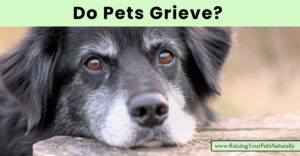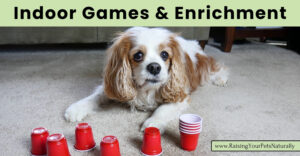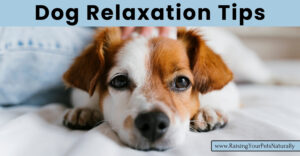Google Adsense—>

Senior Dog Care and Tips
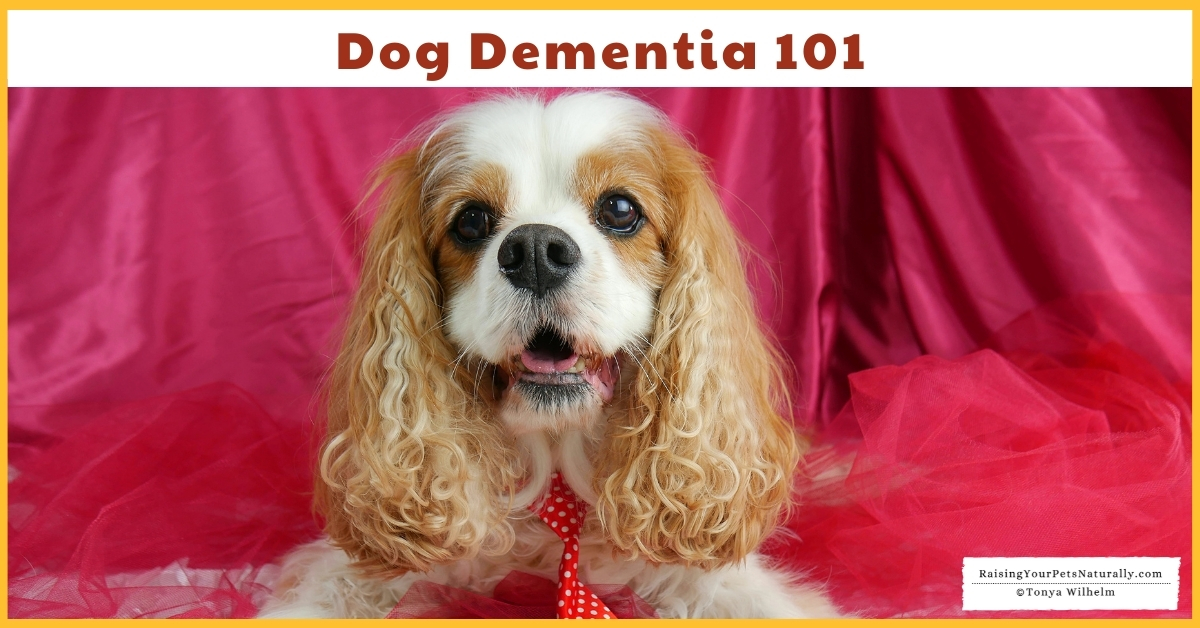
Dexter. It’s hard to believe that Dexter is circling in on his twelfth birthday. Yes, my silly little monkey will be twelve years young this October. I’ve written various articles on senior dog care, and today I wanted to focus on canine cognitive dysfunction or, as some people call it, dog dementia.
Dexter’s body has been slowing down a bit, but I feel his mind is still pretty sharp. As with all things Dexter, I want to be prepared and try to stay ahead of the train as much as possible. I took this opportunity to speak with a few veterinarians on the topic of canine cognitive dysfunction and dog dementia. I hope you find our conversation as helpful as I did.
What Are Some of the Symptoms of Canine Cognitive Dysfunction (CCD)?
Megan Conrad, BVMS, a licensed veterinarian from Hello Ralphie, said, “Some veterinarians use the acronym DISHAAL to help pet parents recognize possible symptoms and come up with a diagnosis.” She went on to give a brief description of each letter is as follows:
- D-disorientation. Your dog may seem confused as to where they are, not recognize people, or stare at walls or into space. They may have trouble finding the dog door or their food dish.
- I-interaction. Your dog may become more clingy or more irritable. Housemates who were their buddies may be looked at with disinterest or even aggression.
- S-Sleep/wake cycle changes. Your pup who slept all night may be wakeful and restless, sleep less and have sleep disturbances.
- H -House-soiling. Accidents in the house from your once perfectly trained dog can occur with CCD.
- A-Activity changes. Your dog might show less interest in playing or going for walks. They may be restless, pace, or aimlessly wander. You might also see repetitive behavior such as licking or chewing.
- A- Anxiety. You may see separation anxiety, fear of new people and places, vocalizing or seeming agitated.
- L-Learning and memory changes. Commands your dog once knew well may get no response, and they may have difficulty learning a new task.
Hearing what Dr. Conrad had to say, now has me rethinking about Dexter’s behavior. As you may recall, Dexter has Chiari malformation and syringomyelia. This condition does cause some dogs to be restless, especially at night. I have noticed Dexter becoming more restless during the day and at night. I chalked it up to his CM/SM. Now, I will take a closer look at his behavior and other behaviors as he continues to age and his disease continues to progress.
Michelle Burch DVM from Safe Hounds Pet Insurance went on to say, “Symptoms of CCD in dogs can vary but will worsen over time. Pets with CCD will have a decreased response to stimulus but can be more vocal with no apparent reason.”
As a professional dog trainer, it’s always important to understand that all behavior isn’t always related to training. This is especially true if a behavior is new or out of the ordinary for a dog.
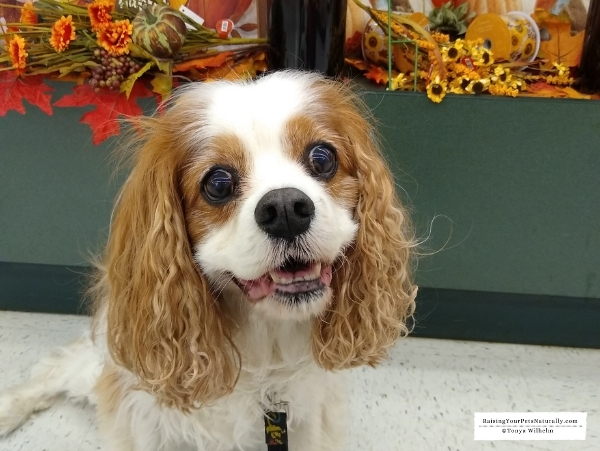
Why Do Dogs Get Canine Cognitive Dysfunction or Doggie Dementia?
Dr. Conrad said, “The reasons for the symptoms of cognitive dysfunction are deterioration and atrophy in brain cells due to aging, possible occurrence of small strokes, and decrease in brain size and number of neurons. What causes these changes, and why some dogs develop them and others don’t, is not known.”
Dr. Burch continued by stating, “There is evidence of micro-hemorrhages, which result in loss of oxygen to portions of the brain. It is estimated that 14-35% of dogs develop CCD, but veterinarians think this is underestimated.”
Diagnosing Canine Cognitive Dysfunction (CCD)
Dr. Burch said, “Diagnosis of CCD is based on your dog’s clinical signs and your veterinarian eliminating other possible causes of the symptoms, and your pet has a positive response to therapy. Your veterinarian will take a careful history of your pet to help rule out other causes while performing a complete physical examination.”
She went on to say, “Additional testing will include laboratory testing, including a complete blood count, biochemistry profile, urinalysis, and possible endocrine tests to help rule out metabolic or endocrine diseases which can contribute to the symptoms. Advanced imaging of MRI can be performed to evaluate brain size and evidence of hemorrhages.”
Dr. Burch also said, “In some cases, a definitive diagnosis is not made until after a dog has passed and undergoes a necropsy (autopsy). Dogs with CCD have decreased brain size, calcification and thickening of the protective layer around the brain, and reduced neurons.”
Caring for and Treating a Dog with Dementia
If you and your veterinarian suspect your dog has CCD, don’t lose hope. There are things you can do to help your senior dog live a happy and full life.
Dr. Conrad suggests speaking with your holistic veterinarian regarding your dog’s diet. “Dietary therapy, as a diet containing antioxidants, Omega-3 fatty acids, B-vitamins, and Vitamins E and C may be beneficial for dogs with CCD.”
She went on to say, “There are nutritional supplements available as well, which contain a combination of substances (which appears to be more effective than single ingredients separately). One supplement called SAM-E ( S-Adenosyl-l-Methionine) has been shown in some studies to help with symptoms.
Dr. Burch also suggests, “Medium-chain triglycerides (MCT). MCTs provide an alternative energy source for the brain and improves brain activity.” She also suggests, “Talking with your veterinarian about supplemental herbal therapies. I recommend discussions about melatonin, valerian root, dog-appeasing pheromone, and ginkgo biloba.”
Dr. Burch suggests looking into acupuncture for your dog. “Acupuncture may be another alternative therapy to help with CCD dogs. In humans, acupuncture is beneficial in slowing Alzheimer’s disease, but there has not been any research to prove dogs benefit.”
Canine Enrichment for Dog Dementia
If you have read any of my blog posts or watched my videos, you know that I feel canine enrichment is vital in your dog’s well-being. And I’m not just talking about tossing food into a dog toy, but actual engagement between you and your dog.
Dr. Burch explains, “Behavioral therapy and environment can help your dog’s declining brain function. Keep up with play and exercise, even if they’re more limited than when he was younger. Be creative in stimulating your dog’s mind with new toys and new commands, and try hand signals if your dog’s hearing is impaired.”
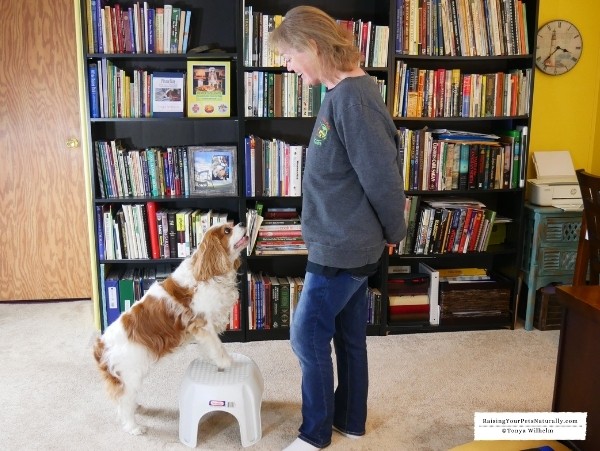
Can You Prevent Canine Cognitive Dysfunction (CCD) or Dog Dementia?
When it comes to caring and training a dog, prevention is always my preference. As Dexter continues to age, I find myself wondering if I can prevent common health issues such as dementia. I already feed Dexter a balanced raw diet, with lots of healthy goodies. But, is there something else I can be doing for him?
Dr. Burch suggests, “I recommend feeding your dog an antioxidant-rich diet consistent with flaxseed, carrots, spinach, citrus pulp, and tomato pomace. These antioxidants will help to reduce the effect of toxic free radicals on brain tissue.”
As always, don’t forget to speak with your dog’s holistic veterinarian if you are changing his diet or adding in supplements. My mantra is always moderation and rotation of Dexter’s goodies.
Dr. Burch went on to offer these canine enrichment tips. “Dogs should be engaged in daily behavioral enrichment of a minimum of 30 minutes a day. Daily behavioral enrichment includes rotation of play toys that engage thinking and problem-solving and physical activity such as walking or swimming.”
After speaking with Dr. Conrad and Dr. Burch, I feel better knowing I am on the right track with Dexter’s care. I just need to keep up with his healthy diet, exercise, and enrichment. Although there is no prevention, hopefully, Dexter can ease into his twilight years. But whatever happens, he’ll always be the center of my life.
Now, sign off the computer and go do something interesting with your dog, no matter what his age. That’s what I’m going to do right now.
Your questions or comments are welcome below.
Are you looking for even more ways to stay up to date with Raising Your Pets Naturally? Sign up for the newsletter for more tips and promotions. Don’t forget to be social and Like, Follow and Subscribe. Comments below are always welcome.
Facebook Twitter Pinterest Instagram YouTube

Original Cavalier gifts |

If you found my blog helpful, please consider a small contribution. Dexter and I thank you! |
Google Adsense—>


